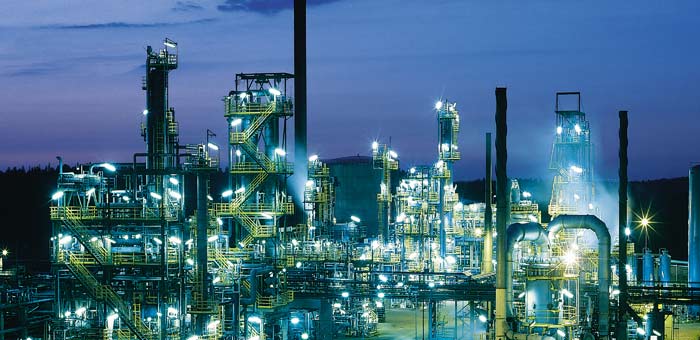Why Are Precision Flow Measurement Devices Essential Today?

In an era defined by technological advancement, operational efficiency, and sustainability, the ability to measure and manage fluid flow with pinpoint accuracy has never been more critical. Precision flow measurement devices are no longer optional in many industries—they are foundational. Whether it’s ensuring accurate dosing in pharmaceuticals, maintaining safety in oil and gas pipelines, or optimizing water management in smart cities, the applications for these devices are as diverse as they are vital.
This blog explores why precision flow measurement devices are essential in today’s landscape, highlighting their role in safety, efficiency, regulatory compliance, and technological innovation.
- Ensuring Operational Efficiency
Real-Time Monitoring and Control
Precision flow measurement devices offer real-time data acquisition, allowing organizations to monitor fluid behavior, adjust processes dynamically, and avoid costly inefficiencies. For instance, in the chemical industry, even slight deviations in flow rates can compromise product quality, waste raw materials, or cause downtime. High-precision flow meters ensure every drop counts.
Reduced Waste and Costs
Flow measurement accuracy directly impacts the bottom line. In industries like food and beverage or water treatment, inaccuracies can lead to overuse of resources, energy inefficiencies, and unnecessary waste. Precision flow measurement devices allow operators to optimize their processes, reducing operational expenses and environmental impact.
- Critical for Safety and Risk Management
Preventing Overpressure and System Failures
In industries such as oil and gas, incorrect flow readings can result in overpressure situations, equipment damage, or even catastrophic failures. By offering exact data on flow rates and pressure levels, precision flow measurement devices enable proactive risk management and system integrity assurance.
Hazardous Material Handling
When dealing with volatile substances—like corrosive chemicals or radioactive fluids—there’s no margin for error. Precision flow meters help manage these substances under strict safety parameters, minimizing the risk of leaks, spills, and worker exposure.
- Supporting Regulatory Compliance
Meeting Industry Standards
Industries such as pharmaceuticals, food processing, and environmental management are subject to stringent regulatory standards. Compliance often hinges on detailed documentation of processes—including flow measurement. Precision flow measurement devices provide traceable, reliable data required for regulatory audits and certifications.
Environmental Reporting and Sustainability
Governments and environmental agencies increasingly demand transparency in industrial practices. Accurate measurement of water usage, emissions, or effluents is critical. These devices facilitate accurate environmental reporting, helping companies remain compliant while supporting sustainability goals.
- Enabling Innovation and Smart Technologies
Integration with Industrial IoT (IIoT)
Modern precision flow measurement devices are more than standalone instruments—they’re integral components of smart systems. They can transmit real-time data to centralized platforms, feeding AI-driven analytics and predictive maintenance systems. This capability enhances decision-making, enables automation, and reduces downtime.
Customization and Flexibility
Advanced flow measurement systems are increasingly customizable. Whether it’s adapting to unique pipe sizes, fluid types, or process conditions, precision devices now offer modularity and compatibility across a range of setups. This flexibility supports innovation in process design and optimization.
- Vital in Energy and Utilities
Optimizing Power Generation
In power plants, especially those utilizing steam or hydro, controlling and monitoring flow is vital for energy efficiency and operational stability. Precision flow measurement devices help optimize fuel consumption, turbine performance, and heat transfer—ultimately improving energy output while lowering emissions.
Water Resource Management
Water scarcity and climate change make precise water management indispensable. Whether in irrigation, municipal supply, or wastewater treatment, precision flow measurement ensures optimal allocation, leak detection, and sustainable use of this critical resource.
- Empowering Healthcare and Life Sciences
Accurate Dosing in Pharmaceutical Manufacturing
In pharmaceutical production, exact dosages of liquids are essential for product efficacy and patient safety. A deviation of even a fraction of a milliliter can render a batch ineffective or dangerous. Precision flow measurement devices ensure every step meets exacting standards.
Laboratory Research and Diagnostics
Flow accuracy is also crucial in research and diagnostics—where instruments must maintain micro- and nano-scale precision. Devices such as thermal mass or Coriolis flow meters play a significant role in blood analysis equipment, DNA sequencing, and drug development processes.
- Enhancing Environmental Monitoring
Flow Monitoring in Natural Systems
In environmental science, monitoring the flow of rivers, stormwater, and groundwater helps track ecosystem health, forecast flooding, and manage conservation efforts. Precision flow measurement devices, often in conjunction with remote sensing tools, provide accurate data to support environmental modeling and disaster preparedness.
Air and Gas Flow in Cleanrooms
Many environmental and manufacturing settings rely on controlled airflow. Cleanrooms in semiconductor fabrication, for example, demand high-precision gas flow regulation to maintain contaminant-free environments. Here, precision flow devices ensure critical process stability.
- Technological Advancements Driving Adoption
Ultrasonic and Coriolis Technology
Traditional flow meters relied on mechanical components, but modern precision flow measurement devices use non-invasive technologies like ultrasonic and Coriolis principles. These offer superior accuracy, minimal maintenance, and compatibility with a broader range of fluids, including slurries, gases, and high-viscosity liquids.
Digital Calibration and Smart Diagnostics
Built-in diagnostics and digital calibration capabilities mean today’s devices can self-validate, notify users of anomalies, and store operational data. This not only reduces manual intervention but also enhances traceability, making these devices ideal for modern compliance and quality management systems.
- Global Trends Amplifying the Need
Climate Change and Resource Scarcity
Rising global temperatures and unpredictable weather patterns are stressing water and energy systems. Precise flow measurement is critical for adaptation strategies—managing limited resources efficiently, detecting system leaks early, and responding to demand fluctuations effectively.
Urbanization and Smart Cities
With more than half the world’s population now living in urban areas, infrastructure must become smarter. From intelligent water grids to responsive HVAC systems in skyscrapers, precision flow measurement devices form the backbone of automated, efficient urban ecosystems.
- The Future of Flow: What Lies Ahead
AI-Driven Flow Optimization
As artificial intelligence and machine learning continue to advance, the integration of smart flow meters into predictive models will enable self-regulating systems that improve over time. These adaptive systems will not just report flow—they’ll interpret it and take action.
Miniaturization and Portability
Ongoing R&D is leading to smaller, portable precision flow devices suited for on-the-go diagnostics, field testing, and point-of-use applications. This is especially useful in disaster response, mobile medical units, and agricultural monitoring in remote areas.
Interoperability and Open Protocols
The shift toward open standards and communication protocols means that precision flow measurement devices will increasingly integrate seamlessly across platforms—from ERP systems to cloud-based monitoring tools—breaking down data silos and unlocking cross-functional insights.
Conclusion
From industrial automation and environmental conservation to energy optimization and public health, precision flow measurement devices are an indispensable part of modern infrastructure. They bring visibility, control, and confidence to processes that would otherwise be opaque and error-prone.
As industries push toward digital transformation and sustainability, the role of precision flow measurement devices will only grow more central. Investing in high-quality, intelligent flow metering solutions isn’t just about compliance or convenience—it’s about future-proofing operations in a complex, data-driven world.

